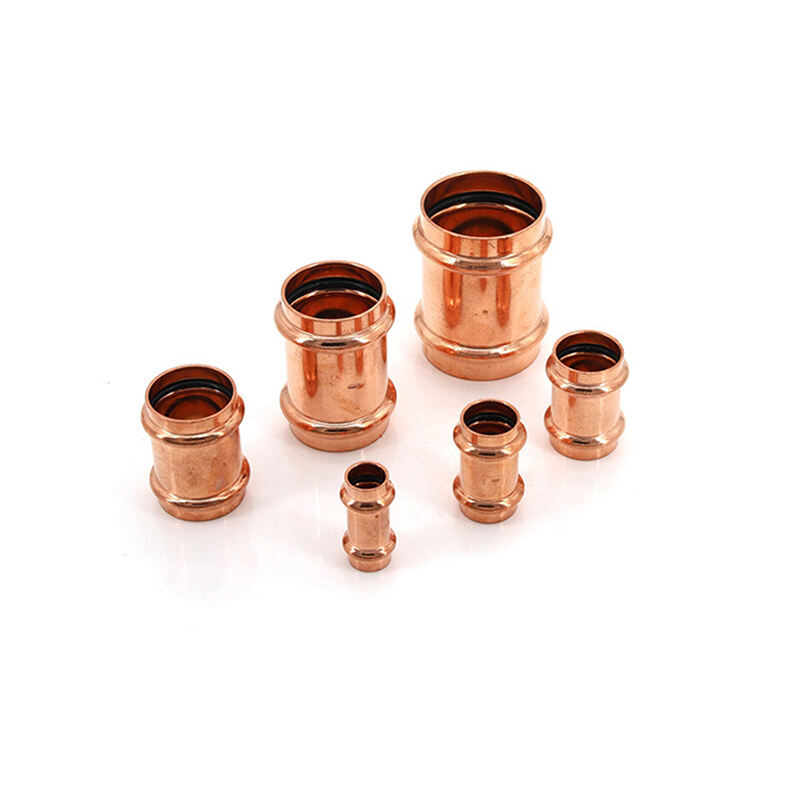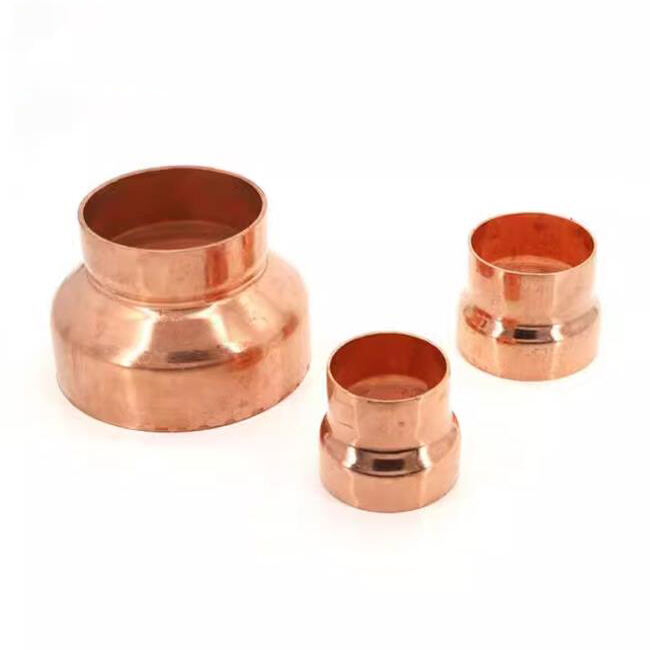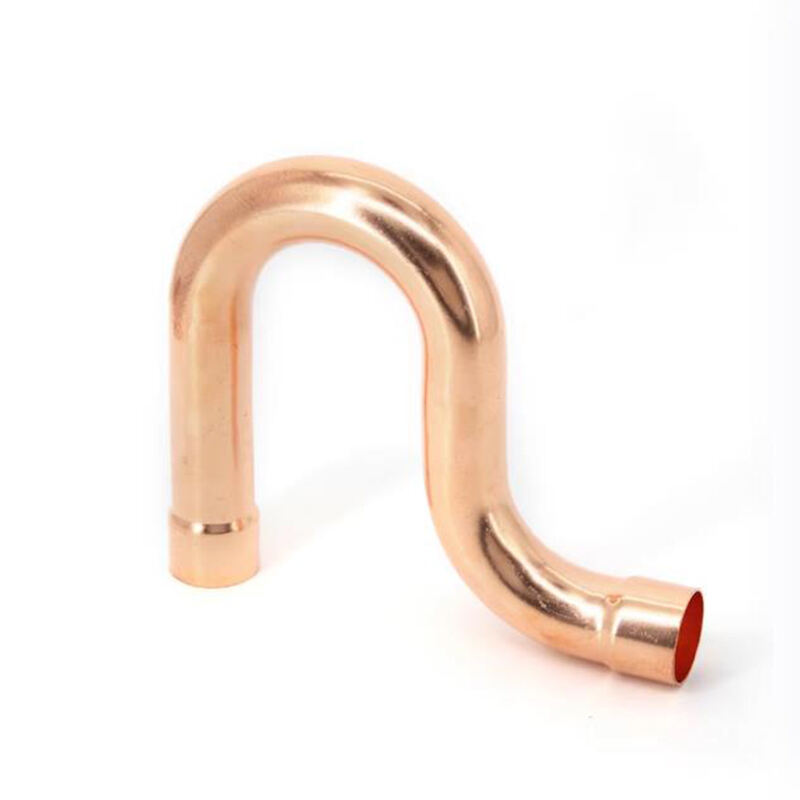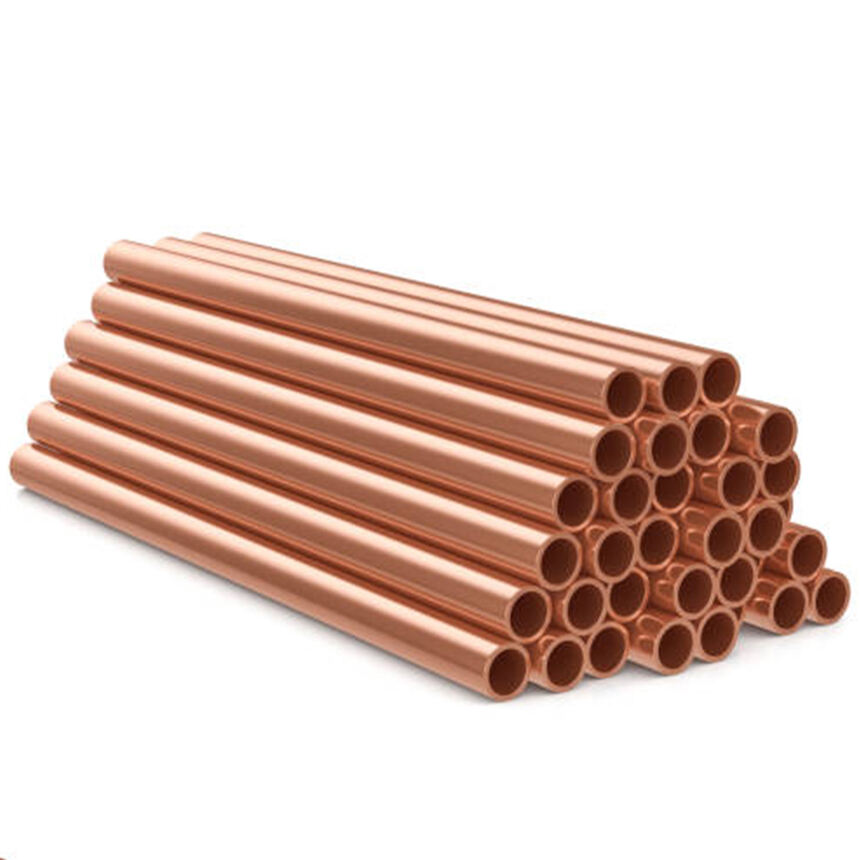Corrosion Resistance and Durability in Harsh Environments
Superior Resistance to Chemical Degradation
Copper couplings stand up really well against both acids and alkalis, cutting down on corrosion problems that plague many industrial facilities. Take chemical plants for instance, where other materials would start breaking down within months. Studies indicate copper alloys corrode at rates below 0.025 mm per year even when exposed to tough conditions, making them ideal choices for those nasty chemical processing environments. What makes copper truly special though are its built-in antimicrobial qualities. These properties keep the couplings working properly over time, which matters a lot in applications requiring high purity standards. Without getting too technical, this means less chance of biofilms forming inside pipes and equipment lasting much longer before needing replacement.
Longevity in High-Temperature and High-Pressure Conditions
Copper couplings hold up surprisingly well even when exposed to really extreme temperatures, anywhere between minus 200 degrees Celsius all the way up to 250 degrees Celsius. That makes these components pretty much indispensable in most heat exchange systems across different industries. When it comes to pressure resistance, copper has some serious staying power too. The metal's tensile strength means it can handle pressures as high as 70 bar without buckling, which significantly boosts how reliable the whole system remains over time. Industrial equipment fitted with copper fittings generally lasts much longer than alternatives, sometimes clocking in at over three decades before showing any real signs of wear and tear. Because they don't need frequent replacement or repairs, companies save money on maintenance costs while keeping their operations running smoothly day after day. For anyone looking at long term investments in piping systems, copper fittings just make good business sense despite the initial price tag.
Thermal and Electrical Conductivity Advantages
Efficient Heat Transfer for HVAC and Cooling Systems
Copper stands out as one of the best materials for heat transfer in HVAC systems thanks to its impressive thermal conductivity rating around 401 W/m K. The way copper conducts heat so fast and well means less energy gets wasted during operation, which ultimately boosts how efficiently these systems work overall. When manufacturers switch to copper couplings instead of alternatives, they often see their energy bills drop somewhere between 10 to 15 percent according to industry reports. For buildings that need exact temperature management throughout different areas, this kind of efficiency matters a lot. Copper helps maintain stable temperatures without unnecessary power drain, making sure cooling units don't have to work harder than necessary while still keeping spaces comfortable.
Optimal Performance in Electrical Grounding Applications
When it comes to grounding systems in electrical work, copper stands out because of its amazing ability to conduct electricity. This property helps cut down on voltage drops across circuits, which means electrical systems run both safer and more efficiently overall. Most electricians will tell anyone who asks that copper should be used wherever grounding matters most since it meets all those strict safety regulations without breaking a sweat. The stuff just works so reliably over time compared to alternatives like aluminum or steel. That's why so many building codes specify copper for critical grounding connections these days. Nobody wants surprises when dealing with live wires after all, right?
Versatility Across Industrial Applications
Integration with Copper Pipe Networks in Plumbing
Copper couplings work best when connected to copper pipe networks and have changed the way plumbers approach their jobs with dependable connections that hold up over time. These fittings are built to fit together smoothly, creating setups that don't leak water anywhere. What makes copper couplings stand out is how easy they are to install or adjust on site without breaking anything else in the system, something that matters a lot whether building from scratch or fixing old pipes. Since they match so well with copper tubing, these connections help stop leaks before they happen and keep the whole plumbing system working properly for years longer than other options. Most plumbers will tell anyone who asks that copper couplings just make sense for most residential and commercial applications because they simply work better in practice.
Critical Role in Chemical Processing Infrastructure
Copper fittings are pretty much essential in the chemical processing sector because they stand up well against corrosion and handle high temperatures without breaking down. When companies use copper couplings to move chemicals around their facilities, they end up spending less time dealing with breakdowns and repairs, which saves money in the long run. Looking at what's happening across the industry, there's clear evidence that switching to copper parts leads to fewer pipe failures overall. One major plant reported cutting their maintenance incidents by about 40% after making the switch last year. That kind of track record explains why so many chemical manufacturers stick with copper when they need something that will last and keep performing consistently over time.
Compatibility with Brass Plumbing Fittings
Copper couplings work really well with brass plumbing fittings, giving plumbers more options when they need to connect different parts of a system. The fact that these materials can be used together means installers can mix and match while still getting good results from their work. Some studies have looked at what happens when copper and brass are combined in plumbing systems, and they found some interesting things. For instance, these mixed systems tend to resist rust better than either material alone, plus they conduct heat quite efficiently too. Plumbers often combine copper and brass components because each brings something valuable to the table. Copper handles high temperatures better, while brass stands up to water pressure changes without cracking. This kind of flexibility explains why so many modern plumbing setups include copper couplings somewhere in the design.
For more information on copper and brass fittings, check out resources and suppliers linking here.
Cost-Effectiveness and Operational Efficiency
Reduced Maintenance Compared to Steel Alternatives
Compared to steel fittings, copper couplings require much less maintenance thanks to how well they resist corrosion. This means businesses save money in the long run while avoiding those frustrating maintenance problems that come up all the time with steel parts. Industry audits support this finding too many companies report cutting their maintenance costs by around 20% after switching from steel to copper components over ten years. Plus, copper lasts longer between replacements which makes sense for anyone looking at equipment longevity. Facilities don't have to worry about replacing these fittings as often as they would with steel alternatives, making them a smart investment for operations focused on both budget control and smooth day-to-day function.
Lifecycle Savings Over Brass Fittings
When looking at lifetime costs, copper couplings actually give plumbers a real money saving advantage over brass fittings in most cases. The reason? Copper just lasts longer and holds up better against all sorts of harsh conditions that pipes face daily. Sure, upfront costs for copper parts are typically a bit steeper than brass alternatives, but this gets made up over time. Many installations show savings well above 30% throughout their entire service life. Industry data supports this shift toward copper, with more contractors switching materials because they see tangible benefits during installations and maintenance work. As a result, copper has become a smart choice for budget conscious professionals who want reliable connections that perform better than old school brass options without breaking the bank in the long run.
Ease of Installation and Sustainable Practices
Compression Fitting Mechanisms for Leak-Free Connections
Copper couplings come with compression fittings that make installation much easier compared to older techniques. Traditional approaches often involve soldering which takes time and creates mess, whereas these modern fittings create solid connections without all that hassle. Installation becomes simpler when workers don't need special training or expensive gear just to get the job done right. Most plumbers find they can complete projects about half as fast with these fittings since basic hand tools do most of the work. What really matters though is how dependable these connections are right from day one. Systems stay leak-free longer, so there's less wasted water and fewer headaches down the road for maintenance crews trying to track down problems in complex piping networks.
Recyclability and Alignment with Green Industrial Standards
Copper can be recycled over and over again without losing any of its quality, which is pretty remarkable when we think about most materials. For this reason, many plumbers and builders prefer copper couplings when working on green building projects or anything where going eco-friendly matters. Most copper fittings come with those little green labels from certification bodies that prove they meet certain environmental standards. Some studies indicate that recycling copper saves around 80 something percent of the energy needed to make new copper from scratch, though the numbers vary depending on who's doing the calculation. The fact remains that copper doesn't just last longer than alternatives but also plays a big role in reducing waste across manufacturing industries worldwide.









